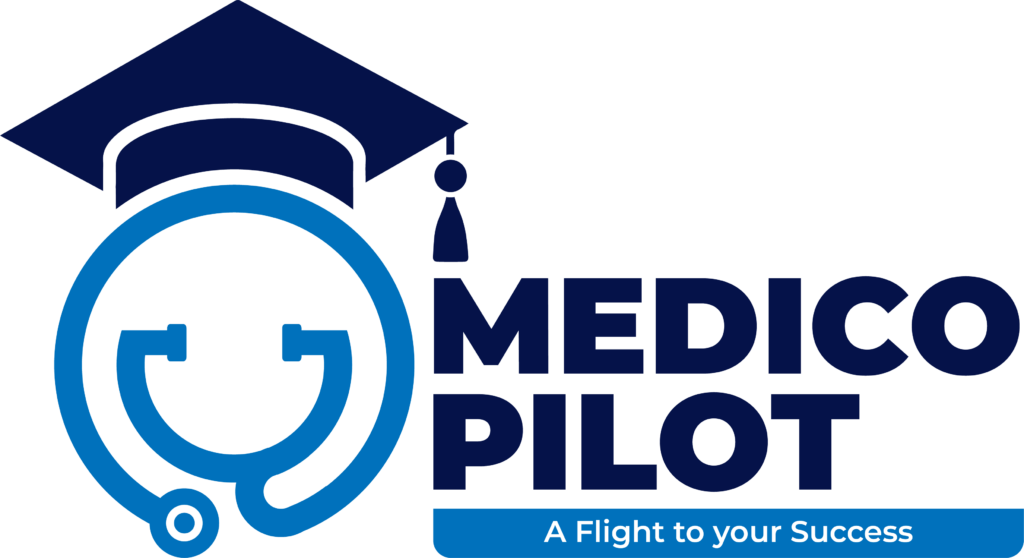
Exploring Alternative Medical Career Paths Beyond MBBS
Medical careers offer a wide range of opportunities beyond the traditional MBBS (Bachelor of Medicine, Bachelor of Surgery) path. If you’re interested in the medical field but are looking for alternative career paths, here are some options to consider:
1. Physician Assistant (PA): Physician assistants are healthcare professionals who work under the supervision of physicians to diagnose and treat patients. They can perform many of the same tasks as doctors, such as taking medical histories, conducting physical exams, and prescribing medications.
2. Nurse Practitioner (NP): Nurse practitioners are advanced practice registered nurses with specialized training in diagnosing and treating various medical conditions. They can work independently in some states and provide primary care services.
3. Nurse Anesthetist (CRNA): Certified registered nurse anesthetists are specialized nurses who administer anesthesia during surgical procedures. They play a crucial role in the operating room and often work independently.
4. Nurse Midwife (CNM): Certified nurse midwives provide healthcare services to women, including prenatal care, childbirth assistance, and postpartum care. They can work in hospitals, clinics, and home birth settings.
5. Dentist (DDS/DMD): Dentists specialize in oral health and treat dental issues, such as cavities, gum disease, and tooth extractions. They can also provide cosmetic dental procedures.
6. Pharmacist (PharmD): Pharmacists are experts in medications and play a crucial role in healthcare by dispensing prescriptions, providing medication counseling, and collaborating with healthcare providers.
7. Physical Therapist (DPT): Physical therapists help patients recover from injuries or illnesses by designing and implementing rehabilitation programs. They work to improve patients’ physical function and reduce pain.
8. Occupational Therapist (OT): Occupational therapists assist patients in regaining the ability to perform everyday activities, especially after injury or disability. They work with individuals of all ages.
9. Speech-Language Pathologist (SLP): Speech-language pathologists diagnose and treat communication and swallowing disorders. They work with patients of all ages, including children with speech and language difficulties and adults with communication disorders.
10. Radiologic Technologist (RT): Radiologic technologists operate imaging equipment like X-ray machines, CT scanners, and MRI machines to help diagnose medical conditions. They play a crucial role in medical imaging.
11. Medical Laboratory Scientist (MLS/MT): Medical laboratory scientists perform laboratory tests on patient samples to aid in the diagnosis and treatment of diseases. They work in clinical laboratories, often behind the scenes.
12. Physician Informatics Specialist: These professionals focus on healthcare information technology, managing electronic health records, and optimizing the use of technology in healthcare settings.
13. Medical Writer: Medical writers create content for healthcare and pharmaceutical organizations, including research papers, patient education materials, and regulatory documentation.
14. Healthcare Administrator: Healthcare administrators manage the day-to-day operations of healthcare facilities, including hospitals, clinics, and long-term care facilities.
15. Healthcare Consultant: Healthcare consultants provide expertise to organizations on improving healthcare delivery, efficiency, and quality, often working independently or for consulting firms.
When considering alternative medical career paths, it’s important to research and choose a field that aligns with your interests, skills, and long-term career goals. Many of these careers require additional education, certifications, or licensure, so be prepared to invest time and effort in pursuing your chosen path. Additionally, networking and gaining relevant experience through internships or part-time work can be valuable steps toward entering these alternative medical professions.
1. Physician Assistant (PA): Physician assistants are healthcare professionals who work under the supervision of physicians to diagnose and treat patients. They can perform many of the same tasks as doctors, such as taking medical histories, conducting physical exams, and prescribing medications.
2. Nurse Practitioner (NP): Nurse practitioners are advanced practice registered nurses with specialized training in diagnosing and treating various medical conditions. They can work independently in some states and provide primary care services.
3. Nurse Anesthetist (CRNA): Certified registered nurse anesthetists are specialized nurses who administer anesthesia during surgical procedures. They play a crucial role in the operating room and often work independently.
4. Nurse Midwife (CNM): Certified nurse midwives provide healthcare services to women, including prenatal care, childbirth assistance, and postpartum care. They can work in hospitals, clinics, and home birth settings.
5. Dentist (DDS/DMD): Dentists specialize in oral health and treat dental issues, such as cavities, gum disease, and tooth extractions. They can also provide cosmetic dental procedures.
6. Pharmacist (PharmD): Pharmacists are experts in medications and play a crucial role in healthcare by dispensing prescriptions, providing medication counseling, and collaborating with healthcare providers.
7. Physical Therapist (DPT): Physical therapists help patients recover from injuries or illnesses by designing and implementing rehabilitation programs. They work to improve patients’ physical function and reduce pain.
8. Occupational Therapist (OT): Occupational therapists assist patients in regaining the ability to perform everyday activities, especially after injury or disability. They work with individuals of all ages.
9. Speech-Language Pathologist (SLP): Speech-language pathologists diagnose and treat communication and swallowing disorders. They work with patients of all ages, including children with speech and language difficulties and adults with communication disorders.
10. Radiologic Technologist (RT): Radiologic technologists operate imaging equipment like X-ray machines, CT scanners, and MRI machines to help diagnose medical conditions. They play a crucial role in medical imaging.
11. Medical Laboratory Scientist (MLS/MT): Medical laboratory scientists perform laboratory tests on patient samples to aid in the diagnosis and treatment of diseases. They work in clinical laboratories, often behind the scenes.
12. Physician Informatics Specialist: These professionals focus on healthcare information technology, managing electronic health records, and optimizing the use of technology in healthcare settings.
13. Medical Writer: Medical writers create content for healthcare and pharmaceutical organizations, including research papers, patient education materials, and regulatory documentation.
14. Healthcare Administrator: Healthcare administrators manage the day-to-day operations of healthcare facilities, including hospitals, clinics, and long-term care facilities.
15. Healthcare Consultant: Healthcare consultants provide expertise to organizations on improving healthcare delivery, efficiency, and quality, often working independently or for consulting firms.
When considering alternative medical career paths, it’s important to research and choose a field that aligns with your interests, skills, and long-term career goals. Many of these careers require additional education, certifications, or licensure, so be prepared to invest time and effort in pursuing your chosen path. Additionally, networking and gaining relevant experience through internships or part-time work can be valuable steps toward entering these alternative medical professions.
